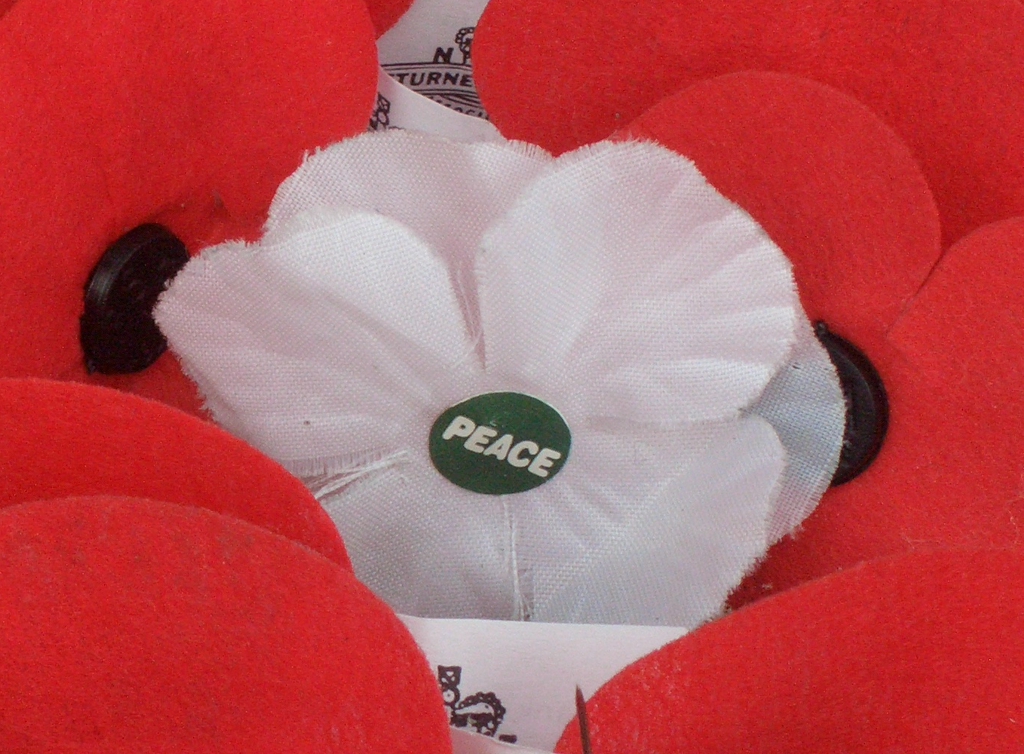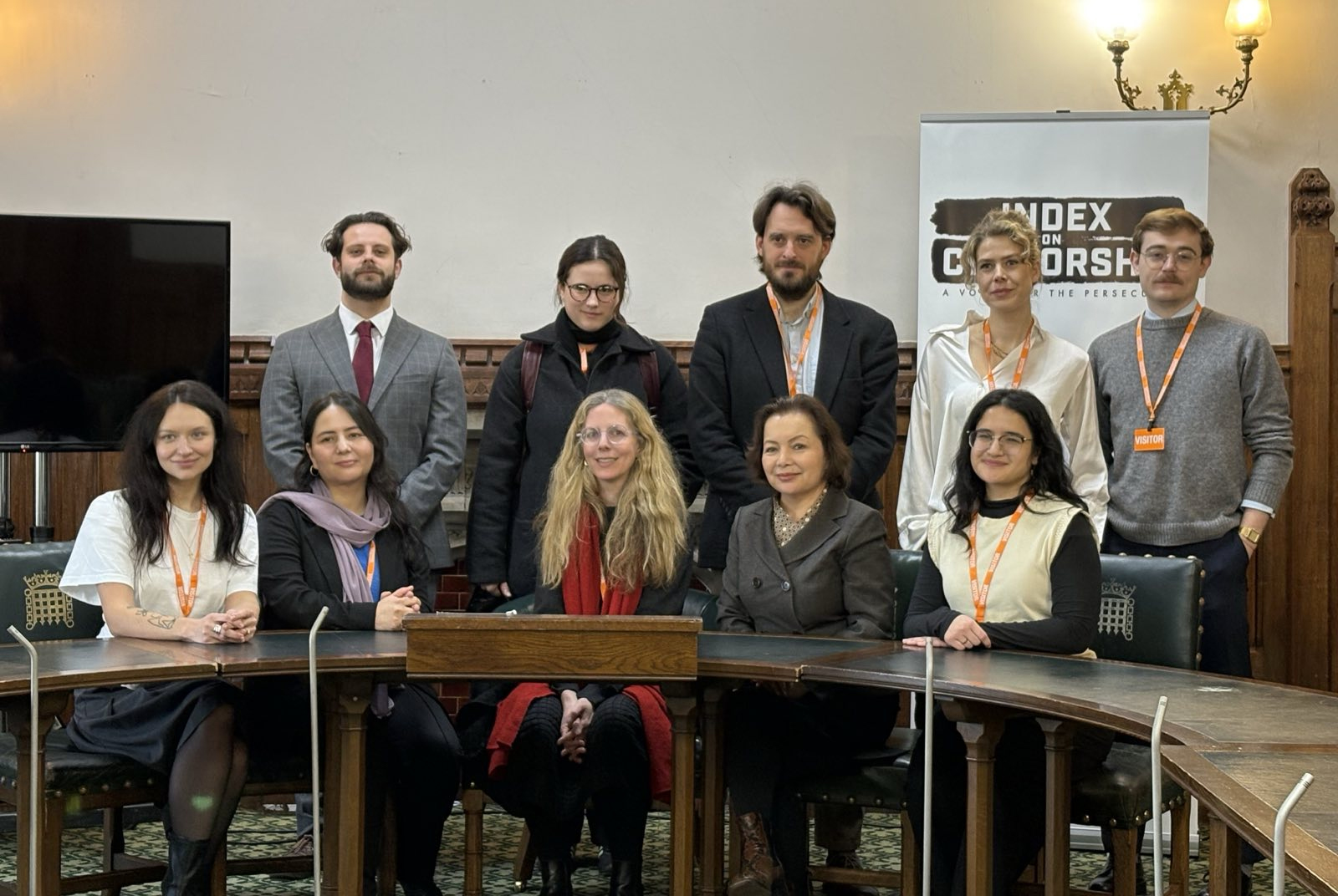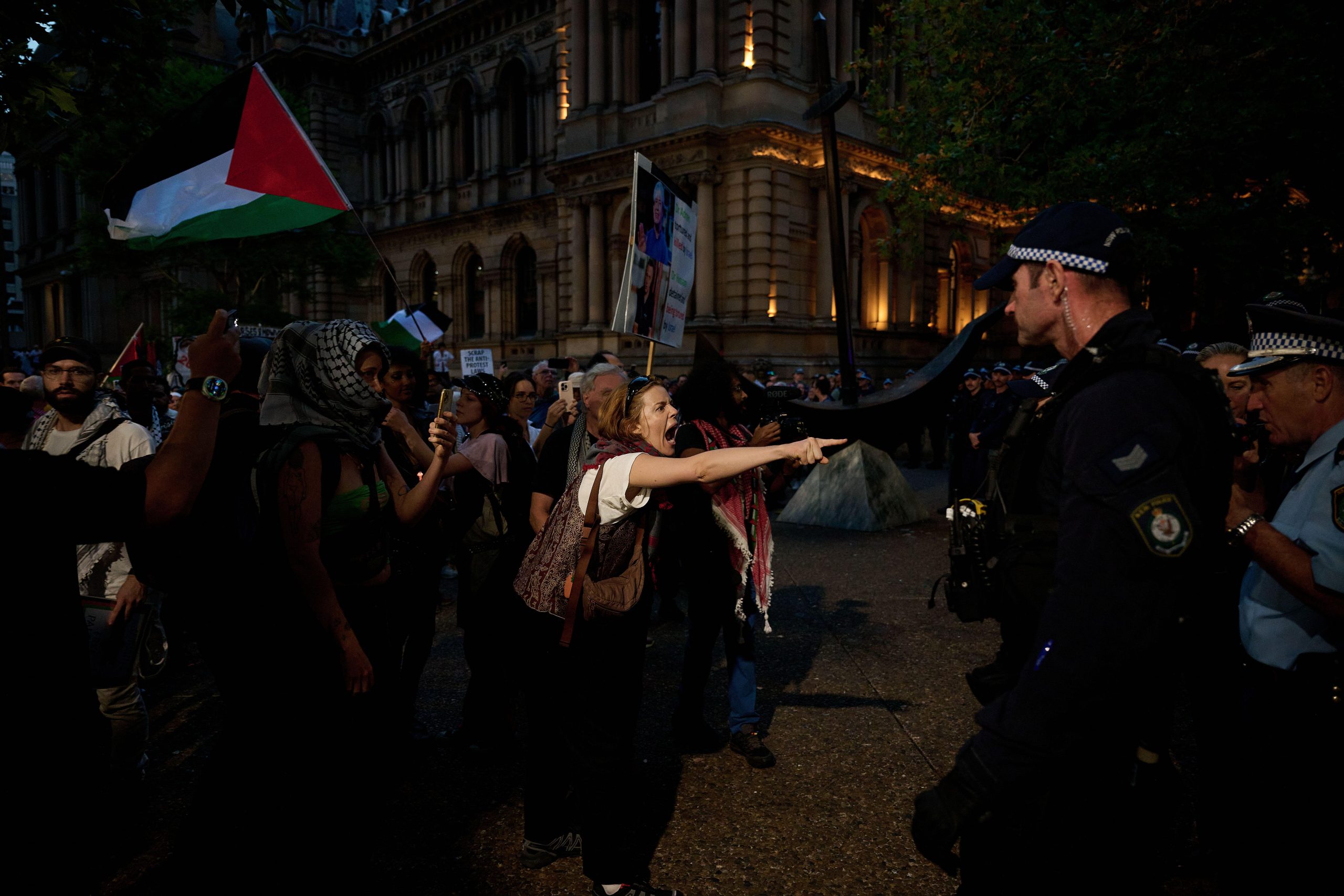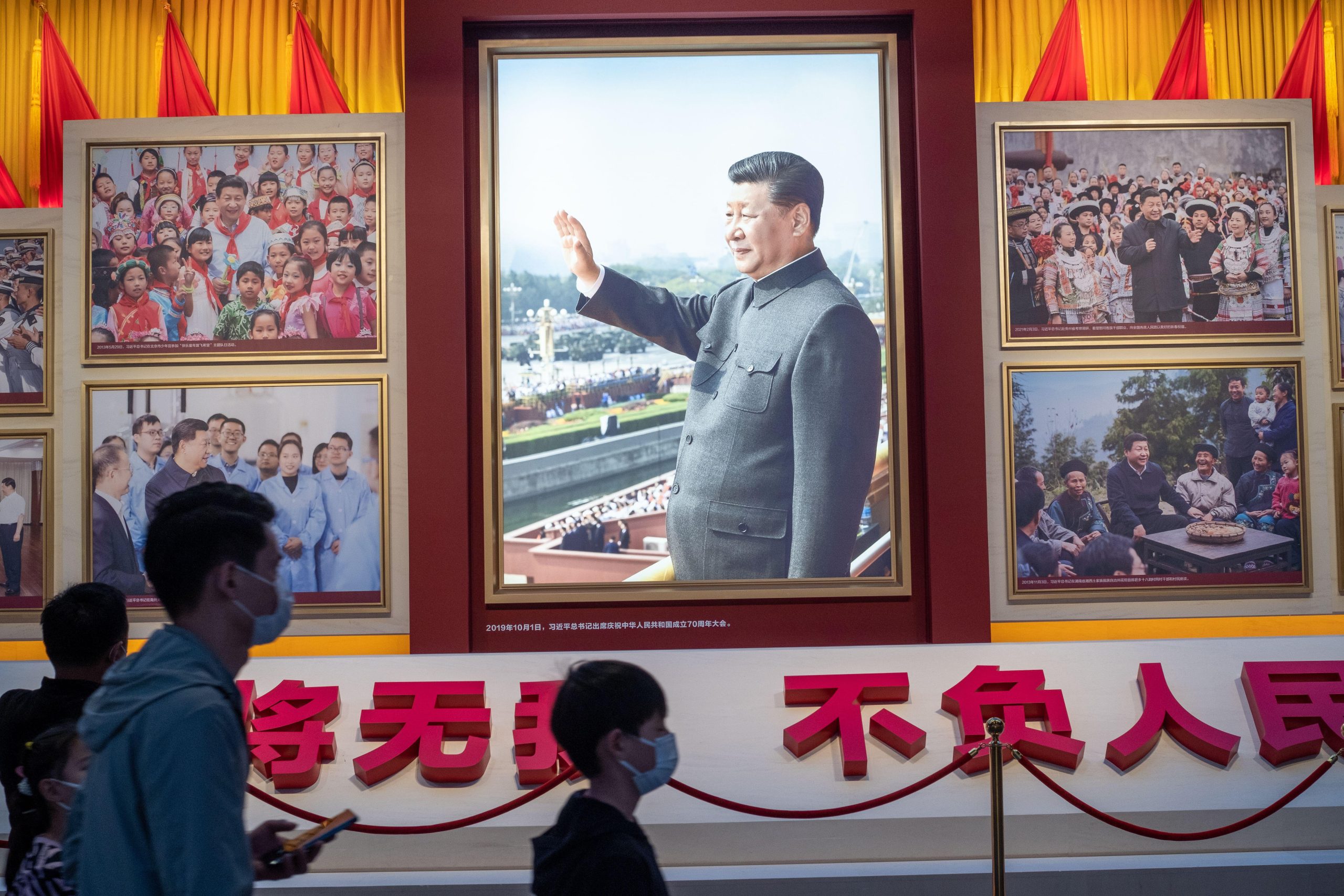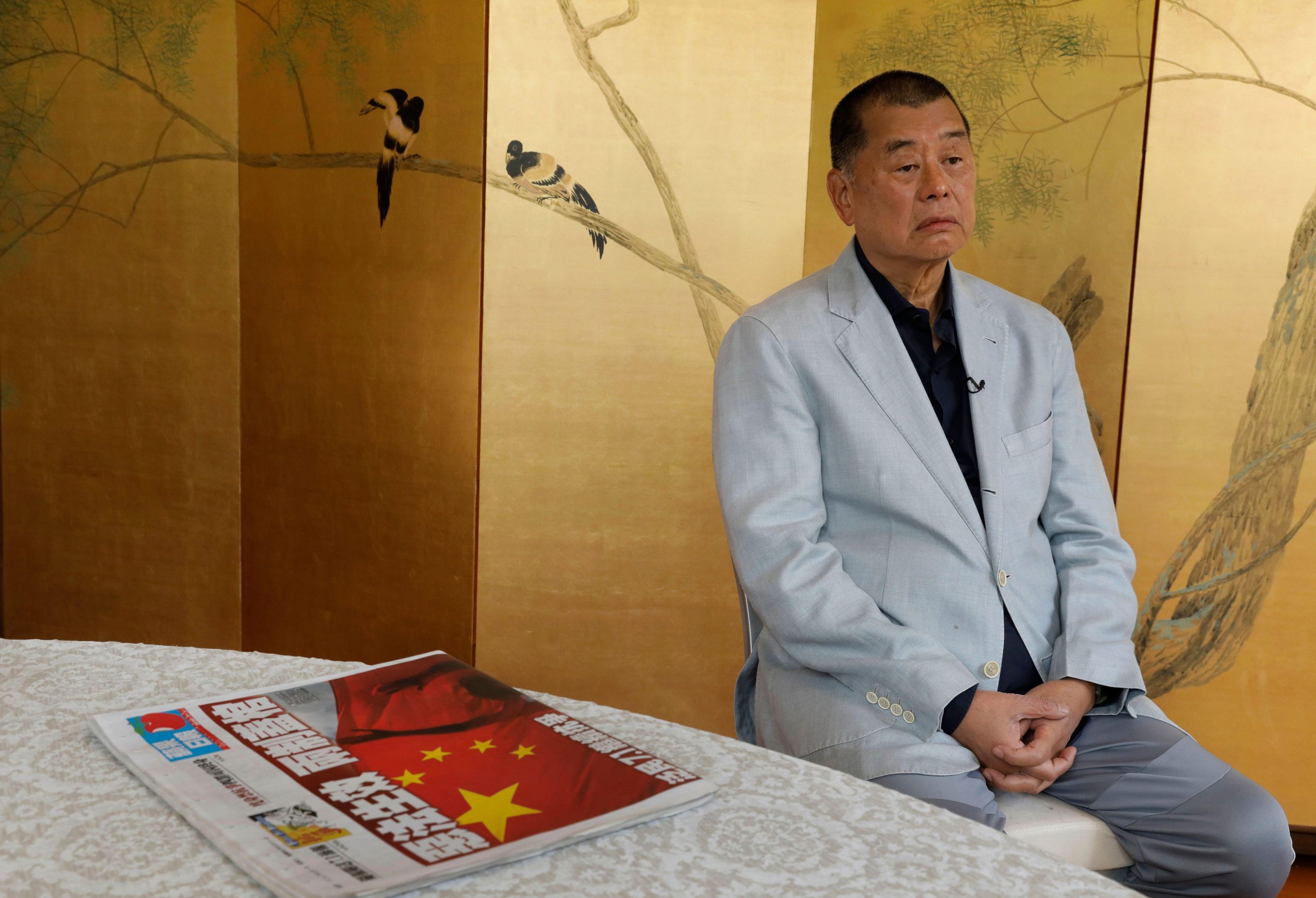In January 1991, as the USA prepared for war in the Persian Gulf, Sergeant John Pruner, then an Army intelligence analyst at Fort Riley, Kansas, failed to return from leave. His attempts to apply for conscientious objector (CO) status had been thwarted by an obscure change in regulations; his request to have his job changed and his security clearance taken away had been denied; and a lawsuit he brought in federal court to force the Army to accept his CO application had failed to guarantee that he would not be deployed to the Gulf while his application was being reviewed.
When he turned himself in, 32 days later, at Fort Dix in New Jersey, unlike most others who had been absent without leave (AWOL), he was not released. Instead, he was dragged from bed, handcuffed, sent back to Fort Riley, where a press release about his capture had already been prepared, and restricted to post for the next five months. Through the grapevine, Pruner learned that he had been labelled ‘a national embarrassment case’. -I made a decision back in November to try to do everything legally and to try to be discharged as a conscientious objector,’ Pruner explains. ‘But if I couldn’t separate myself legally, then I would do whatever I could, whatever the cost was to me. I could not cooperate with the military in making a war.’
That same January, Eric Hayes, a corporal in the Marine reserves and a student at Southern Illinois University at Edwardsville, was found guilty of unauthorised absence and sentenced to eight months in military prison. Rather than report when his unit was called up for active duty at the end of October 1990, Hayes had publicly stated his opposition to the war and applied for a CO discharge. Two weeks later, at 2.30am, he was arrested in his dormitory and flown to Camp Lejeune in. North Carolina, the first of 28 Marine resisters sent there to stand trial from around the country. Hayes, who spent the 40 days before his court martial in solitary confinement, had his sentence slightly reduced and was released last June.
Nine months later, back at university where he had been president of the Black Students Union and a counsellor for inner city kids, Hayes said, ‘I didn’t believe in fighting a rich man’s war. Economic conscription is the biggest reason people join the military, the new social welfare for poor blacks, Latinos, whites. I didn’t want to fight in ’87 and ’88, but I knew my views were political and I knew I couldn’t beat the rap, so I pleaded guilty. White males are allowed to grow and mature, read, enhance their minds. But when black males mature (and change their minds), they’re asked, “Who put you up to this?”‘
The cost of consicence
According to a survey conducted by the New York-based War Resisters League, Pruner and Hayes are two of 2,500 US soldiers who completed CO applications between 2 August 1990 — when Iraq invaded Kuwait — and mid-June 1991.
The Pentagon puts the figure much lower — 352 applications from 1 October 1990 to 1 September 1991 — but this includes only those applications that made it through the review process to military headquarters. Even so, the Pentagon’s figures show a 64% increase in applications filed over the previous year and an 18% decrease in those approved. By any reckoning, those seeking CO status account for a tiny fraction of the troops involved in Operation Desert Storm, and most were processed out of the military quickly and quietly. But disciplinary charges were brought against about 150 soldiers who applied for CO status and who also refused orders related to the war or failed to show up when their units were activated. They claim that the military made it difficult for them to find out about conscientious objection, stymied their efforts to submit applications and then stalled the review process, leaving them no choice but to disobey orders that – went against their beliefs. Once brought to court-martial, they received uncommonly severe sentences ranging from a few months to years in military prison.
The Marine Corps pursued punishment most vigorously; because of the way they were treated, the COs at Camp Lejeune became something of a symbol for both their supporters and critics. Defence lawyers argued that of the more than 150 Marines who reported late during the Gulf War, only CO applicants were charged with desertion. Their clients, they contend, were persecuted for their beliefs and punished for exercising their right of free speech. In support of this position, Amnesty International adopted 29 COs — over half of them at Lejeune — as prisoners of conscience; 33 Catholic bishops signed a letter asking President Bush to grant amnesty to soldiers who refused to fight in the war.
The Marine Corps responds that in all cases the disciplinary charges were unrelated to the issue of conscientious objection; COs were treated no differently from others. It cites Defense Department rules requiring CO applicants to abide by military regulations, including transfer orders, until a discharge is granted. Failure to follow orders, especially in time of war, the Marines stress, cannot be taken lightly. But military regulations also state that ‘to the extent practicable… every effort will be made to assign (CO) applicants to duties which will conflict as little as possible with their asserted beliefs’. According to CO counsellors, the military went out of its way during this period to do the opposite.
When Sam Lwin, one of the first Marine reservists to apply for CO status, handed in his application in New York in November 1990, his commanding officer responded, ‘I hope the sergeants and other officers beat the shit, out of you.’ Tahan Jones, another Marine reservist, applied for CO status in California. Soon after, a sergeant reminded him how much bigger he, the sergeant, was and how easily he could ‘kick his ass’. In Illinois, under the guise of giving George Ward, a third reservist and CO applicant, a regulation haircut, Marines shaved his head so violently that it bled and scarred. Last winter, the first COs at Lejeune were harassed so badly by other Marines while they awaited trial that a military judge reduced some sentences in recompense. In the army, David Carson, Robert Chandler, Sean Hodder, Derrick Jones and Bryan Centa, all stationed in Germany, were shackled and forced onto planes for Saudi Arabia. Once in the Gulf and far from public scrutiny, CO applicants almost always had their claims delayed and denied and were subjected to beatings and death threats.
Dissent denied
Not only were soldiers prevented from filing for CO status and intimidated when they did, but those who made their cases public became objects of official vindictiveness. Some were shipped out to Saudi Arabia where their access to public media could be controlled; others, such as the Lejeune COs, were sent far from home to separate them from their attorneys, families, supporters and friendly witnesses. Leonard McNeil of the American Friends Service Committee’s Peace and Justice Youth Outreach Project in Oakland, California, believes that COs who spoke out were often treated worse than soldiers convicted of manslaughter or armed robbery.
Lawyers and counsellors for COs in all branches of the military are certain that their clients were used as object lessons in what happens to soldiers who dissent. Andre Stoner, who coordinated the Military Counselling Network in Germany, concludes, ‘We observed that if you’re a CO, if you stated your convictions, your opposition to war, you were far more likely to be treated poorly than if you said, “I was scared and I left”.’ According to Ron Kuby, a lawyer in New York who represented COs at Lejeune, Marine policy was explicit. Defendants were offered shorter sentences if they pleaded guilty or, in some cases, agreed to join their units in Saudi Arabia; if they went to the media, they Were assured of stiffer punishment. Acknowledging what was going on at Lejeune, William Smith, an attorney representing Marines at Camp Pendelton, California, advised his clients not to talk to the press and not to introduce the CO issue, which, he says, was like waving a red flag.
In what was probably the most public and protracted CO case, Erik Larsen, a determined, articulate and photogenic Marine reservist from California, was charged with desertion in time of war — potentially a death penalty offence •— ostensibly because he had gone AWOL for 32 days rather than join his unit for training exercises in Arizona. In a pre-trial hearing, his lawyer presented two ‘fact briefs’, internal memos recording telephone conversations between Marine headquarters in Washington and Larsen’s division in California. The conversations took place in September and October 1990, just after a press conference where Larsen announced his intention to apply for CO status. The briefs tracked his appearances at anti-War rallies and the media and political interest he attracted.
‘Larsen’s public pronouncements could possibly be punishable as statements disloyal to the US,’ the September brief said. ‘Unless he disobeys orders or engages in further misconduct, however, disciplinary action based on his statements alone is inadvisable . in view of his 1st Amendment protections …’ The October brief noted that ‘Congressman Dellums has entered the fray to the limited extent of asking that Larsen’s command safeguard welfare and protect from “unofficial bullying”‘. It concluded, ‘Command prefers conscientious objector route as most low key approach*.
But when Larsen applied for CO status that autumn, his application was turned down as being solely political; when he appealed against the decision, his due process rights were violated repeatedly. Last November, he was allowed to plea bargain on a lesser charge, served a six-month sentence and was released in April. Says Larsen, ‘I think the Marine Corps considers folk like myself a great threat. If you speak out or question, you get slammed. That’s the bottom line.’
In Larsen’s and several other courts-martial at Lejeune, the government tried to introduce newspaper articles and videotapes of public events in which defendants expressed their opposition to the war and their intention to apply for CO status, even though the speech of servicepeople is protected by military . regulations as long as they do not make public pronouncements in their capacity as soldiers. While acknowledging this, Major Jay Farrar, a public affairs officer at Lejeune, insists that speech was never an issue in the CO cases. Rather, he says, the videotapes were used as evidence that the COs knew they were breaking the law when they made the statements and were politically motivated in their CO claims.
Whatever the point of the videos, the trials and sentences at Lejeune seemed intended to make Marines think twice before standing up to the military. Threatened with long sentences, many of the first COs to come to trial opted to plead guilty and enter into pre-trial agreements. Then, in May, Sam Lwin contested his charges and received only four months, by far the shortest sentence given until then; as if in retaliation, when Enrique Gonzalez also pleaded not-guilty two days later, he got 30 months, the longest sentence at Lejeune. In contrast, a Marine who blamed his absence during the entire war on alcoholism, received a 21-day suspended sentence.
Once the COs were in prison — and none was found innocent — their incoming and outgoing mail was read by censors, and they were subjected to frequent strip searches and goading by prison guards. Muslim objectors were ordered to handle pork and, when they refused, were put in solitary confinement. Eventually, the Marines appeared to realise they had little to gain by keeping these men locked up; by December 1991, all but two of the COs at Lejeune had been released.
Even then, the Marines tried to keep dissent under wraps. Shortly after giving a talk critical of military recruitment last autumn, Eric Hayes received a letter telling him that as long as he was on appellate leave (i. e. for the remainder of his pre-trial agreement sentence of four years), he was forbidden to give interviews, news conferences or lectures. The letter cited a difficult-to-find division order that Hayes’ attorney, Hilary Richard, says clearly applies only to Marine Corps officials. In January this year, Hayes and three other released COs filed a lawsuit challenging the gag order.
Volunteers of America
Since 1980, the USA has relied on volunteer soldiers, with recruitment efforts aimed largely at students graduating from high school. Many delay entry for a year or enlist in the reserves so that they can work or continue their education.
Almost immediately after the USA began to prepare for the Gulf War, its largest military action since the last draft ended, volunteer soldiers on active duty challenged deployment orders; and when reservists were also called up, military counsellors, attorneys and politicians across the country reported a barrage of phonecalls about conscientious objection. The most politically adept COs called press conferences to announce their opposition to the war effort, gave interviews to whomever would listen and became speakers on the anti-War circuit.
The first CO to achieve his 15 minutes of fame was Jeffrey Patterson, a Marine corporal who sat down on the runway of an air station in Hawaii as his unit was being loaded onto planes bound for the Gulf in August 1990. In the middle of his court martial that December, Patterson was released from service with an ‘other than honourable’ discharge, but by then news of his resistance had already alerted many soldiers to the CO option, one that most claim they were unaware was open to them.
The outbreak of people who had once chosen the military now opposing battle baffled and enraged military officials and the US public. Conscience was pitted against patriotism, individual rights against military duty, dissent against solidarity and, almost always, powerless enlistees against a powerful military command. In what may be the understatement of the war, Clare Overlander, an attorney defending Army COs on trial last summer, observed, ‘Given the present climate, we are talking about the most unpopular defendants in the country at this time.’
It was a conflict in which words mattered greatly. In their applications, prospective COs wrote about boot camp training where they were made to sing, ‘Rape the town and kill the people, that’s the thing we love to do.’ At courts-martial, prosecuting officers portrayed the COs as ‘sunshine patriots’, ‘opportunists’, and ‘manipulators’ who underwent ‘pathetically convenient’ conversions when asked to fulfil their duty.
The military seemed unable to acknowledge the depth of the disaffection. After most trials were over and defendants in prison, Lieutenant-Colonel Bubsey, who, as Staff Judge Advocate for the 4th Marine Air Wing, had advised the commanding general about some of the Lejeune courts martial, said in a phone conversation, ‘Obviously these kids aren’t criminals. They just made a serious blunder.’
Stop loss and lost innocence
On 22 August 1990, President Bush issued Executive Order 12728 authorising the Secretary of Defense to implement a ‘Stop Loss’ policy which allowed the military to suspend nearly all discharges, transfers and retirements for soldiers. Under the Army’s Stop Loss — the most extensive — no one whose unit was on alert, had been notified of deployment or had been deployed to the Gulf, could apply for CO status until arriving there. The language in these new policies was often unclear and many commands failed to alert soldiers to this change until they tried to file CO applications. John Pruner is one of many caught by the ambiguity.
Pruner, 25, enlisted in the active duty Army five years ago. Soon after, he took a college course in world politics taught by the woman who later became his wife. The class and the relationship led him to take other courses, read widely and renew his religious faith. He claims he disliked the Army from the start, but didn’t know he could apply for CO status after he had enlisted. ‘When you’re in the military you don’t realise there’s a way out,’ he says.
Then came 2 August. ‘In my job, I saw a lot of classified information that I knew officials knew, and then they would get up on TV and say something different. That tends to make you cynical. The Gulf crisis triggered a period of intense reevaluation on my part. I realised that it was up to me what I did because I’m the one who’s going to have to live with it and, in the end, answer to God.’
At the end of October 1990, Pruner found a CO counsellor who advised him to wait until they met to work on his application. Two weeks later, he informed his commander that he intended to apply for CO status; only then did he learn that the Army had just changed its rules so that he was prohibited from filing until he got to Saudi Arabia. His application was returned and his counsellor advised him to see a lawyer.
Christopher Hodge, a tenacious attorney experienced in military law, practising near Fort Riley, took Pruner’s case and suggested asking a civilian court to force the Army to accept his CO application because it had not followed its own rules in issuing the new regulation. They lost the case but the Army agreed to let Pruner apply.
His application was eventually approved until the top of the command chain, but shortly after applying Pruner went AWOL. ‘I left because I couldn’t continue in the job I was in,’ he says. ‘The Army says to hold on for six months, a year, and continue to do what you’re doing, but that’s why you applied for CO status, because you couldn’t.’
Though the Army hoped to bring Pruner to trial quickly, his case dragged on until October 1991,%when he was found guilty of desertion and sentenced to four months in prison with a dishonourable discharge. Along the way, the Army reneged on a pre-trial agreement and insisted that Hodge get a security clearance before he could introduce classified information about Pruner’s work. ‘The military justice system is coercive,’ Hodge says. ‘I don’t think it’s neutral. It can’t be.’ He plans to appeal against the ruling. Pruner, meanwhile, has enrolled in college and will start classes this summer.
Congress considers
Once the war was over, it was an unusual politician who was willing to stand up for those who had dissented. One exception was Representative John Conyers of Michigan, who prevailed upon the General Accounting Office, Congress’s investigating arm, to look into what happened to COs during the Gulf period. Another is Representive Ronald Dellums of California, who has prepared two bills aimed at protecting CO applicants from abuses in the system. One bill would broaden the definition of conscientious objection to include opposition to a specific war, which would bring US policy closer to the position of the UN Declaration on Human Rights. It would also put the right to apply into law. A second bill would grant the right of review to soldiers whose disciplinary problems resulted from errors or unfairness in the CO process.
Congressional action may serve to focus overdue attention on the problems of justice and resistance within the US military but, in the end, it is those under threat who argue most eloquently for their rights. Erik Larsen says, ‘I didn’t give up the right to speak out when I enlisted. I feel it’s my duty when something is as wrong as our policies. It’s the right of every soldier to say no to war.’ Eric Hayes adds, ‘This was not just about peace. It was about people’s potential for growth — spiritually, intellectually. That the path I once chose makes me no longer choose that path.’
Objecting in America
In the USA, the right to conscientious objection comes under the First Amendment’s guarantee of the freedom to exercise one’s religion. The Defence Department defines it as ‘a firm, fixed and sincere objection to participation in war in any form or the bearing of arms, by reason of religious training and belief. Two Vietnam-era Supreme Court decisions (CAS v Seeger and Welsh v US), broadened the definition of religious belief to include deeply-held moral and ethical convictions not necessarily based on the concept of a God.
In Jailed for Peace: the History of American Draft Law Violators, 1658-1985 (Greenwood Press 1986), Stephen M Kohn shows that Americans have always been ambivalent about conscientious objection, though pacifist resistance to the military is older than the country itself. The first instance was recorded in 1658 in Maryland; a century later, the Continental Congress granted exemption from military service on the basis of conscience in one of its first laws. After independence, James Madison advocated including a CO exemption in the Bill of Rights. Those who feared federal interference with state militias made sure his proposal did not prevail.
The first national draft came into effect during the Civil War when both the North and South exempted COs. Nevertheless, opposition to military enlistment was often treated as a crime. CO exemptions were also allowed when the draft was reinstated in 1917, but that year, former President Theodore Roosevelt branded pacifists as ‘traitors’, and during World War 1,450 resisters were court martialed and so badly mistreated that at least 17 died in jail.
In World War II, a tiny portion of those eligible for the draft filed for CO status but, even so, the FBI and the Military Intelligence Division kept extensive records on resisters. In 1948, the first peacetime draft came into effect and, despite the deep chill of the McCarthy years, by 1957, 7.18% of military inductees were conscientious objectors. From 1965- 75, for the first time, the majority of COs were not religious objectors. From this era comes the prevailing image of the CO as a white, Christian, middle-class, educated, male draftee. This legacy tends to obscure the amount of resistance from volunteers and soldiers from other backgrounds during the Vietnam War and beyond. In 1972, after years of organised resistance to the Vietnam War, for every 100 men inducted into the military, 130 received CO exemptions. Bowing to the inevitable, Richard Nixon put an end to draft call-ups at the end of that year.

